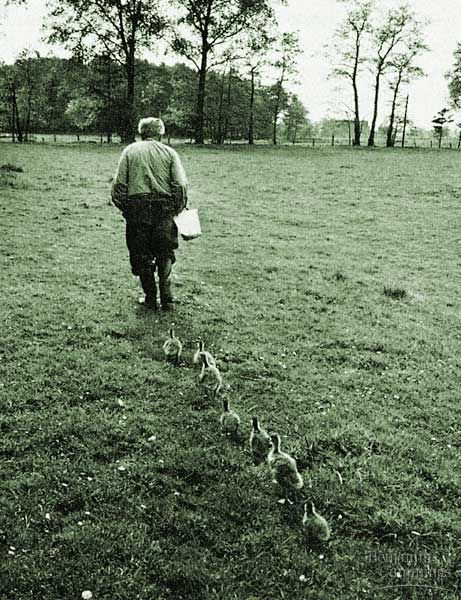The association of knowledge with interests that guide its development and transmission brings to the fore the question of emancipation: in what sense are we, in what sense can we be free? In a nutshell, since our way of experiencing and acting in the world has been structured by interests, our very perceptions and actions are the means by which we are being mobilized to pursue those interests. So, how can we be free? How can we be our own persons?
I find it helpful to keep in mind that we can consider our place in the world only after we have acquired a stock of knowledge, after we have developed sufficiently, typically by the time we have become adults. By that time, we have of course been extensively tutored by others into what to perceive and how to conduct ourselves, we have acquired a stock of knowledge through which we consider our place in the world. In other words, we have been socialized as members of communities, and we have been made in quite specific ways.
In a previous posting (The Structure of the Knower), I brought up two general interests that guide this socialization, one being the stability and continuation of the community we are being socialized into, another being our own interest in belonging to a community. Our well-being and even our survival depends on being socialized and assimilated into a community, and, usually, the stability of the community is in our own interest as well. Depending on the community we are members of, each one of us is raised to have a different stock of knowledge, suited to the survival and well-being of the community as well as of ourselves. And these stocks of knowledge can be radically different. It takes a particular stock of knowledge to survive as member of a hunter-gatherer community living in a jungle, a different one for a member of a settled farming community living by growing crops, another for a member of a nomadic pastoralist community living by the husbandry of cattle, yet another for a city dweller living by manipulating symbols. Even within a single community, members may be socialized differently, acquiring very different stocks of knowledge. The most familiar and virtually universal case is the differences in socialization according to male and female gender, with members being socialized into distinct male and female roles. In populous societies with a large number of occupations, each requiring a different stock of knowledge, there are corresponding differences in socialization, say, for farmers, carpenters, ironsmiths, nurses, computer engineers, jurists, and so on. The same considerations apply of course with regard to religions and our socialization into a religious community (or none at all), and extend to the adherence to particular diets (well-known examples include vegetarianism, or not eating pork or beef).
In very many cases, the roles our community makes available to each one of us at birth, that is, the possible stocks of knowledge to be socialized with and the kind of person we can become, are very limited. This is fairly clear in the case of gender socialization into male and female roles (with usually no allowances made for intersex or other non-binary possibilities), as well as in the case of a religious upbringing, when someone is raised as, say, Hindu, Christian, or Muslim. It is also evident in cases where the children are raised to follow in their parents’ occupation – for example, the son of the carpenter becomes a carpenter, of the farmer a farmer, the children of cleaners become cleaners – without much of a choice. The whole society may be organized in castes, with the families belonging to a caste practicing a circumscribed range of occupations specific to that caste. And even in contemporary western societies, whether someone ends up as unskilled laborer, an hourly worker, or as an educated office worker, an engineer, a physician, may well be the result of one’s birth and early schooling. One’s station in life may be due to an accident of birth.
We do not choose the community we initially grow up as members of, we do not even choose our initial station within that community. In other words, we do not choose our initial stock of knowledge, what we are initially made as. More than that, each and every one of us is under pressure to perform the functions and play the roles we have been raised into, to conform to the expectations, to the standards of our community. Communities exert strong pressures to ensure conformity, pressures that involve rewards and sanctions, rewards that range from mild approval to celebrity status, and sanctions that range from mild disapproval to brutal violence. Most of us are more or less content with following the ways of our community, with conforming to expectations; after all, this is the means through which we participate in the life of the community, have a sense of belonging, are proud of who we have been made to be. For the ones of us who are not content however, the pressure to conduct oneself within the spectrum of options afforded by the community, the pressure to conform, may feel oppressive and suffocating. Especially because it is a pressure that is exerted not only by external means such as material rewards and sanctions, but also through the internalization of communal norms, through the shaping of our experience of the world and of our place and purpose in it. The pressure to conform is also coming from within ourselves, from who we have been made to be.
The answer to the question about how we can be free is now straightforward: emancipation refers to freedom from the pressure to conform to the ways of our community, freedom to pursue our own choices and ways, guided by what we consider important and worthy and value. We can always put effort into doing things in a different way, into trying to bring about a new way of living and experiencing the world, guided by our own interests. Reality is in excess and the knowledge imparted through our upbringing, the knowledge of our culture, does not exhaust the world; the way we have been made does not exhaust us. Our resources for emancipation are to be found in the vast excess of reality, its independence from human knowledge. So, we have the latitude to try to develop knowledge guided by our own interests, fashion our own way of being in the world. Of course, there is no guarantee that we will be successful in our efforts, and we might very well fail. Pursuing our own interests and choices is not easy.
Emancipation of course amounts to very different things depending on the individual stock of knowledge and on the options available in the milieu we find ourselves in, on who one is and who they want to be. Emancipation will amount to different things for a woman in a male-dominated profession or community; for an unskilled laborer wishing better pay and working conditions; for someone living in a small rural tightly-knit community; for someone who finds (or loses, or changes) religion; or for a meat-eater becoming a vegetarian. The break with the ways we assimilated through our upbringing and the pursuit of our own choices and ways will be guided by our own station in life and our own individual interests. Emancipation may be an individual pursuit, but, as in situations where interests for a change are widely shared, it may also be a collective one, pursued through mass organization and mobilization.
If our interests diverge from those of our community, pursuing our own ways will involve a struggle against the demands of the community, along with a struggle to learn a different way of life, a struggle to discipline ourselves in novel ways, along channels different from those we were raised. We might find however that our own interests overlap plenty with those we were raised to express – we might even be happily unaware of the confluence of our interests with those of our community. In such a case our community might offer us all the choices we want, and we can channel our efforts accordingly; emancipation would not be a concern of ours.


